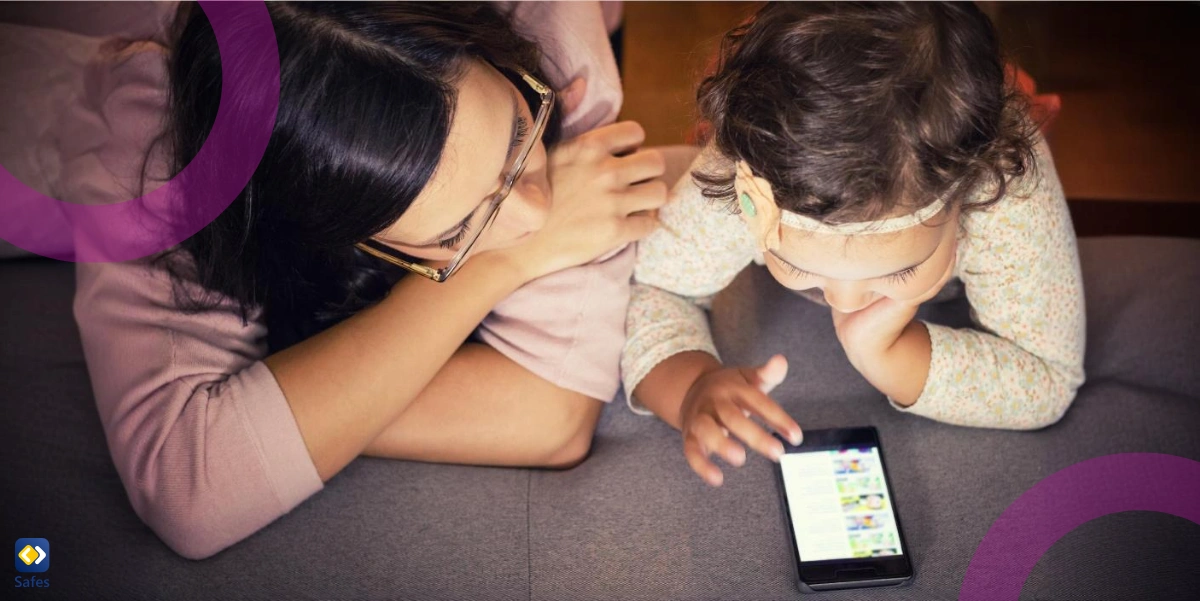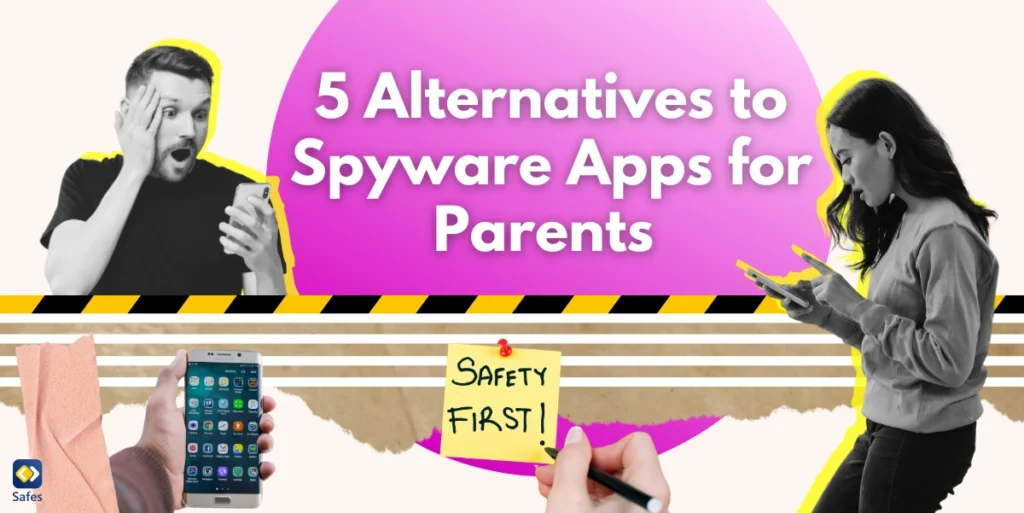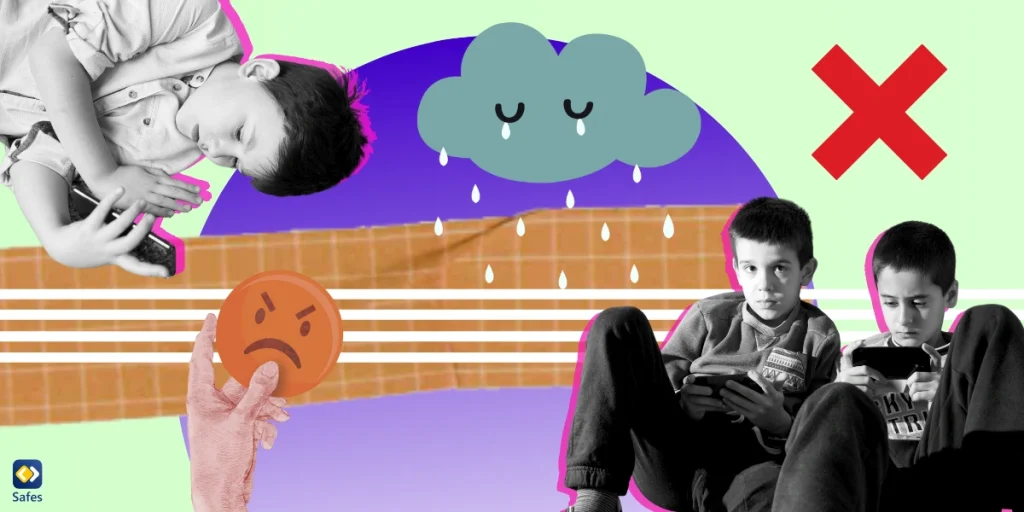In today’s digital world, parents are increasingly worried about their children’s online safety. With kids spending more time on their devices—whether it’s for school, entertainment, or socializing—parents want to ensure they are protected from dangers like harmful content, cyberbullying, and inappropriate interactions. This concern has driven many parents to consider spy apps for their kids’ phones, leading to a rise in the use of spyware apps for parents aiming to shield their kids from online dangers. These apps promise to monitor everything from text messages to browsing history and even real-time location. While these features may seem appealing, they often come at the expense of privacy and trust.
Download and Start Your Free Trial of the Safes Parental Control App
Why Are Spyware Apps No Go?
Although spy apps seem like an easy solution for parents, they carry significant risks. First and foremost, these apps breach privacy, operating secretly and often without the child’s consent. Such practices can damage the parent-child relationship by creating a sense of secrecy and mistrust.
Additionally, spyware apps are vulnerable to security breaches. Many lack proper encryption, leaving sensitive data—like your child’s location or personal information—exposed to potential hackers.
Rather than resorting to invasive measures, parents can explore safer, more ethical alternatives that prioritize transparency, safety, and mutual trust. Below, we discuss five effective options.

Safer Alternatives to Spyware Apps
Let’s look at some safer options to use instead of spyware apps.
1. Safes: A Parental Control App That Prioritizes Trust
Safes is a modern, comprehensive parental control app designed to protect your child’s digital environment without violating their privacy. Unlike spyware, Safes encourages transparency and collaboration between parents and kids.
With Safes, parents can:
- Monitor their child’s online activity and ensure safe search functionality.
- Set screen time limits to encourage healthy habits.
- Filter inappropriate content such as adult content and other inappropriate content.
- Block specific apps or websites that could pose risks.
- Track their child’s real-time location for added safety.
One of Safes’ standout features is its user-friendly interface and seamless compatibility with a wide number of devices. Safes provides parents with the tools they need to guide their kids’ online behavior while maintaining trust and respect.
2. Built-In Parental Controls for Apple Devices
For families using Apple devices, the built-in Screen Time feature offers powerful tools to manage a child’s digital habits. These iPhone parental controls are integrated into the operating system, ensuring both privacy and security.
With Apple’s parental controls, parents can:
- Monitor how much time kids spend on specific apps.
- Set daily limits for app usage or block apps entirely.
- Enable content filtering to block adult content and other inappropriate content.
- Restrict downloads and purchases without parental approval.
This tool provides a transparent way to establish boundaries while encouraging children to develop healthy online habits.
3. Google Family Link for Android Devices
Android users can take advantage of Google Family Link, the free built-in parental controls for Android devices. Family Link offers a suite of features to help parents manage their child’s device usage.
Features of Google Family Link include:
- Monitoring app usage and managing specific apps.
- Setting screen time limits to balance online and offline activities.
- Enabling safe search and content filtering to ensure a child-friendly browsing experience.
- Tracking the real-time location of the child’s device.
Family Link emphasizes collaboration, requiring both parent and child to agree to its use.
4. Norton Family
If you’re looking for more advanced features, Norton Family is another excellent option. It’s a parental control software that works across multiple devices and offers a variety of features:
- Social media monitoring to track interactions on social media apps.
- Detailed insights into your child’s browsing history and online activity.
- The ability to block specific websites and apps that may contain harmful content.
Norton Family is a good option for larger families, as it supports a higher number of devices. With a user-friendly interface and robust capabilities, it’s a reliable alternative to invasive spyware apps.
5. Educating Kids on Digital Safety and Encouraging Offline Activities
Last but not least, one of the most effective ways to protect your child online is by educating them about digital safety. Teaching children how to navigate the internet safely can reduce the need for constant monitoring in the long run. Start by discussing the risks of the online world, such as inappropriate content, scams, and harmful interactions. Show them how to recognize red flags and encourage them to report anything that makes them uncomfortable. Additionally, involve them in setting boundaries by explaining the importance of blocking specific apps or websites and using safe search features. These conversations empower children to take control of their own online safety while strengthening the trust between parents and kids.
Another powerful strategy is encouraging offline activities to reduce screen time. Not only does this promote better health, but it also limits exposure to online dangers. Introduce hobbies like sports, reading, or creative projects that can engage your child in productive and positive ways. These activities are an excellent opportunity for family bonding, while also helping to curb excessive screen use. By encouraging kids to participate in offline pursuits, parents can naturally ease concerns about digital overuse and harmful content exposure.

Why Safes Stands Out
As one of the most reliable parental control software options for both Android and iOS devices, Safes provides the perfect balance of security, transparency, and functionality. With features like content filtering, screen time limits, and real-time location tracking, Safes addresses parental concerns effectively without compromising trust.
Sign up for a free trial today and experience how Safes can make parenting in the digital age easier and safer.
Conclusion
While spy apps for kids’ phones may offer short-term solutions, they pose risks to privacy and relationships. Instead, tools like Safes, Google Family Link, and Apple’s Screen Time provide safer, more effective alternatives.
By combining these tools with open communication and a focus on education, parents can create a secure and trusting environment for their children—both online and offline.
Your Child’s Online Safety Starts Here
Every parent today needs a solution to manage screen time and keep their child safe online.
Without the right tools, digital risks and excessive screen time can impact children's well-being. Safes helps parents set healthy boundaries, monitor activity, and protect kids from online dangers—all with an easy-to-use app.
Take control of your child’s digital world. Learn more about Safes or download the app to start your free trial today!




